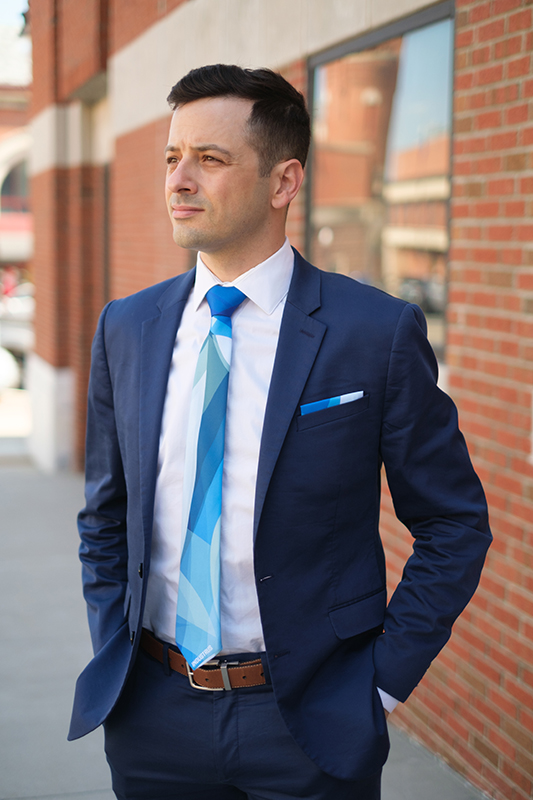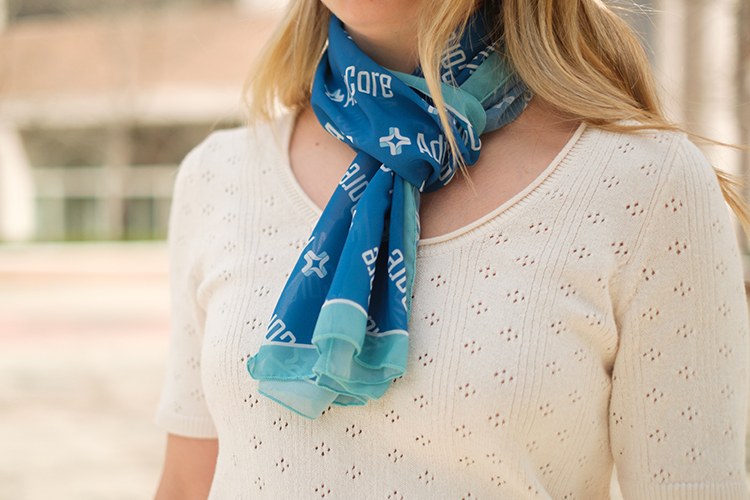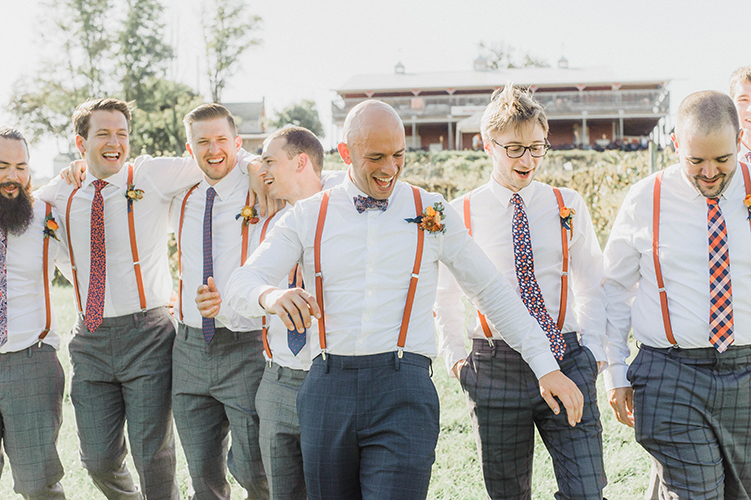By Amanda Lacey
Photography courtesy of Knotty Tie
MAKERS ON A MISSION: from employing refugees to repurposing plastic waste

Some of Denver’s most disadvantaged residents are thriving thanks to a creative entrepreneur and ties—yes, neckties. While this fashion accessory has evolved over the years, Jeremy Priest embraced a moment for it to be reinvented. Taking it a step further, he created a company, Knotty Tie Co., to express caring about others honoring the dignity of humans.
Specializing in customizable ties and other goods, including robes, pocket squares, suspenders and more, Priest reminisces on how Knotty Tie Co. came about: “It wasn’t really a passion for fashion; it was a compassion for refugees that led me down this path.”
Originally from Ohio, Priest joined the Navy after high school. Six years proved to be an eye-opening experience in many ways and has elements in the origin story of Knotty Tie Co., especially in the awareness of the global refugee crisis. Returning to the States and starting college in 2008, Priest later worked with a refugee program in Denver. It became abundantly clear to him how many barriers refugees face. After college, he began brainstorming ideas for meaningful employment, ultimately deciding to create something for himself—and to help others in the process.
With limited resources available and seeing the opportunity to innovate the necktie, he quickly got to work. Priest also saw a need to incorporate sustainability into his business practices. With only 10 percent of plastics being recycled, he sought to find a second life for this waste. Knotty Tie Co. products are created from organic and recycled fabrics (now made out of recycled plastics) and are completely customizable. They come in fun, bright colors and impossibly silky fabric despite having once been plastic. And they’re made in his facility in Denver, where he employs a disadvantaged population. Business missions accomplished.


“It’s rethinking the entirety of what a company should do and how a company can participate in solving problems or alleviating suffering,” Priest says. “It’s about how we can create opportunities for those who need it the most by reinventing a product and offering something new to people.”

While acknowledging the importance and pride in making an incredibly high-quality product, Priest notes that these are not luxury products and reflects on the meaning. The dictionary definition of luxury is: “the state of great comfort and extravagant living.” But Priest thinks of it in a different way: “For some, it may be status, and for others, it may be simpler things such as having a job, being a part of a community, believing in a positive future for yourself and your family. It’s luxury in a different way—the luxuries we have are not the luxuries that people who have been forced to flee their homes and restart their lives have. People can be financially poor but rich in so many other ways. That’s what is so beautiful about refugees.”
Knotty Tie Co.
knottytie.com



